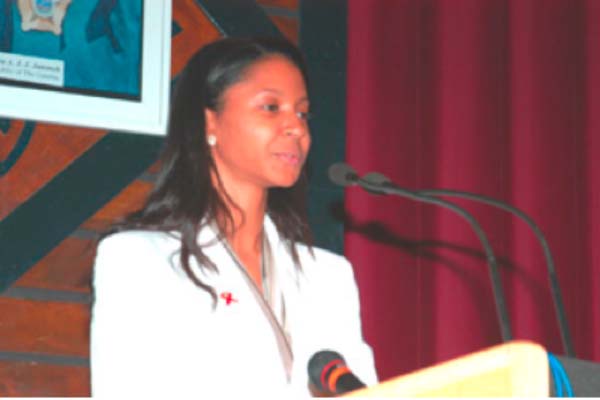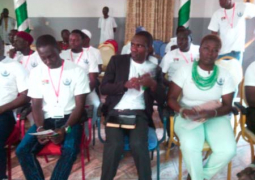
In her launching statement, Mrs Jammeh said it was the beginning of an important initiative that is very close to her heart, since she assumed the responsibility in the Association of First Ladies supporting the cause of women in the fields of empowerment, development, breast cancer and HIV/AIDs.
Mrs Jammeh said about the vaccine launched to prevent cervical infection, that HPV is the fourth most common cause of cancer in the world with approximately 500,000 new cases and about 25,000 deaths annually.
In The Gambia, cervical cancer is the second leading cause of cancer deaths among women, which is preventable with two doses of the HPV vaccine, the First Lady announced.
This project, she added, is referred to as a demonstration project exercise, because this was the first time The Gambia had launched an immunization programme targeting adolescents.
She said lessons and experiences learnt in the process would go a long way in helping the Ministry of Health and Social Welfare in making an informed decision, and policy formulation for the eventual roll-out of the HPV vaccine nationwide.
Zeineb Jammeh said the government of President Yahya Jammeh is providing the enabling environment to ensure the success of the project, while GAVI – “our traditional donor in relation to vaccines and immunization” - is helping in the provision of the vaccine and logistics needed for the demonstration of the project.
The First Lady also highlighted the deadly Ebola disease, calling on people “to remember our brothers and sisters in Sierra Leone, Liberia and Guinea, who are battling with the dreadful Ebola outbreak.”
She further noted that the disease has become a catastrophe in these countries with a devastating effect on their health system, and therefore urged all Gambians to remember them in their prayers for the disease to be brought under control and a vaccine made available in the soonest possible time.
Deputy Unicef Representative to The Gambia Rupert Leightou, in his remarks, said the day marked yet another milestone in the history of immunization services in The Gambia.
He noted that the launching of the HPV vaccine demonstration project is out to target girls in the early adolescent years in the Western Health Region to prevent cervical cancer.
HPV is a type of virus that is common worldwide and is known to be harmful to humans, he said, adding that the virus is transmitted through sexual contact, and some of the strains are particularly harmful to women and cause cervical cancer.
He added that cervical cancer virus is the cause of the most frequent cancer in women around the world, and the third greatest cause of death from cancer in women.
According to him, many women die of cervical cancer in the developing world than in wealthier countries.
Mr Leightou said every year the world registers an estimated 530,000 new cases of cervical cancer, and more than 270,000 women die from the disease.
Disturbingly, more than 85% of these deaths occur in low- and middle-income countries, he said.
According to current research conducted in The Gambia, 98 women are diagnosed with the disease and 57 die every year from cervical cancer, he added.
Furthermore, and in line with the global trend, the disease is also known to be “the commonest cancer among Gambian women”, he declared.


